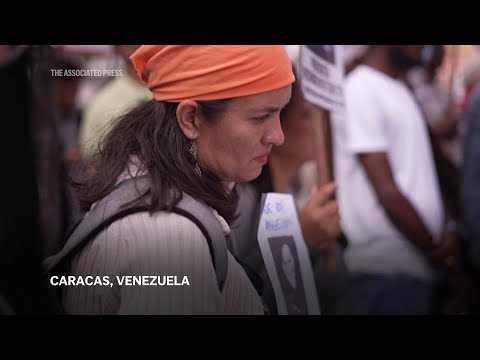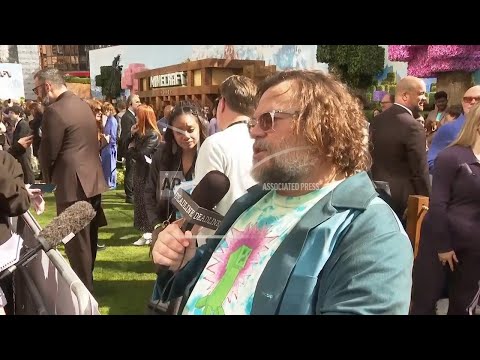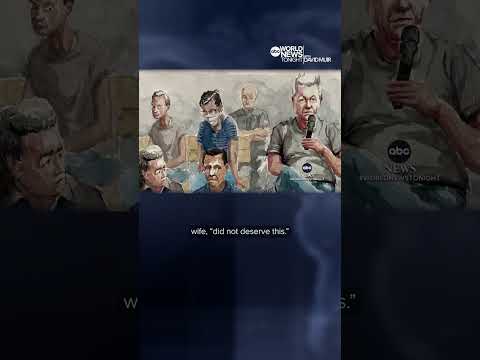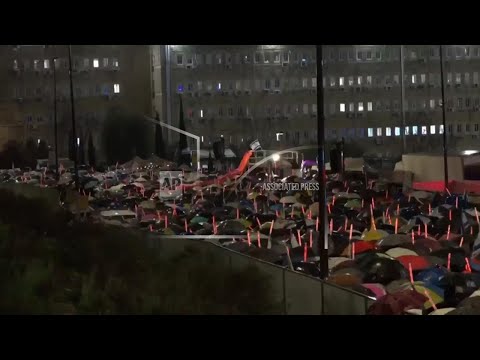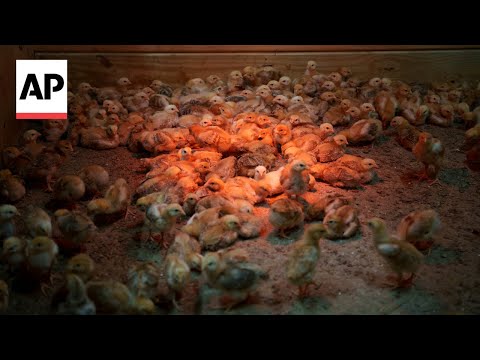(31 Jan 2025)
RESTRICTION SUMMARY:
++AUDIO QUALITY AS INCOMING++
ASSOCIATED PRESS
Caracas, Venezuela – 21 January 2025
1. Various of relatives of prisoners holding their picture at a protest in front of the Public Ministry ++PART COVERING SHOT 2++
2. SOUNDBITE (Spanish) Antonio Gonzalez, Human Rights activist: ++AUDIO QUALITY AS INCOMING++
"The vast majority of these young people are innocent, they were not participating in any violent act. Some were exercising their right to demonstrate in a peaceful manner, and some, may have committed some acts of vandalism such as destroying political propaganda but they are being accused of terrorism."
3. Various of relatives of prisoners holding their picture at a protest in front of the Public Ministry ++PART COVERING SHOT 2++
ASSOCIATED PRESS
Caracas, Venezuela – 17 January 2025
4. Wide of prisoner sitting for interview ++BLURRED AT SOURCE++
5. SOUNDBITE (Spanish) Former prisoner, Name withheld to protect identity: ++AUDIO QUALITY AS INCOMING++
"I have heard the testimonies. I have read the testimonies. I have met torture survivors. And they take me there. That’s when I said, well… that’s when I entrusted myself to God. I said: ‘Well, God take care of my life, because it doesn’t depend on me anymore.’ That’s when I felt fear."
6. Cutaway
7. SOUNDBITE (Spanish) Former prisoner, name withheld to protect identity: ++AUDIO QUALITY AS INCOMING++
“They instilled fear. They instilled the idea of no longer participating politically in anything, which does great damage to any society that wants progress and development in any country."
ASSOCIATED PRESS
Caracas, Venezuela – 22 January 2025
9. Wide of street in favela in Caracas
10. Mother of a former prisoner walking towards her mother’s house
11. Wide of Caracas ++DUSK SHOT++
STORYLINE:
Venezuela’s President Nicolás Maduro labeled them terrorists on national television.
The adults and minors were plucked from pharmacies, apartment buildings and elsewhere and thrown in prison for months.
Many endured severe beatings, food deprivation and other forms of torture.
Virtually all developed stomach infections and lost weight. Three died.
More than 2,200 people were detained after Venezuela’s July presidential election, when civil unrest broke out over Maduro’s claim to victory.
Six months later, with dissent firmly squelched, the government has slowly released nearly 1,900 of the mostly poor, politically unaffiliated twenty-somethings.
Tearful reunions with family, some as recently as Friday, have brought them an immense sense of relief – an answer to prayer – but that vanishes quickly with the realization that they are not truly free, neither physically nor mentally.
Now at home, the former detainees, particularly those who participated in post-election demonstrations, also must cope with the disappointment that the votes they defended on the streets did not push Maduro out.
"They instilled fear, they instilled the idea of no longer participating politically in anything, which does great damage to any society," a man who was detained for more than five months told The Associated Press.
The man and relatives of other former detainees told AP how the government’s repressive apparatus wrecked their lives after the July 28 election.
Former detainees suffer insomnia, cannot be among crowds and tremble at the sight of a police officer.
They have heart conditions unusual in young adults.
They are worse off financially than before the election and cannot find work partly because their IDs were seized during their arrests.
Find out more about AP Archive: http://www.aparchive.com/HowWeWork
Twitter: https://twitter.com/AP_Archive
Facebook: https://www.facebook.com/APArchives
Instagram: https://www.instagram.com/APNews/
You can license this story through AP Archive: http://www.aparchive.com/metadata/youtube/2fe954943f354c8390b7d67c51a7e019
Author: AP Archive
Go to Source
News post in February 5, 2025, 6:04 am.
Visit Our Sponsor’s:
News Post In – News

